
2018-01-30
New DEREX data
New DEREX data are available for 17 countries, based on ESS Round 8 (2016/2017).
Read more
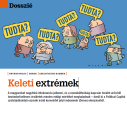
2016-08-11
Keleti extrémek
A magyarokat nagyfokú intolerancia jellemzi, és a menekültválság kapcsán tovább erősödő bevándorlóellenes érzületek minden eddigi mértéket meghaladnak – derül ki a Political Capital szélsőjobboldali eszmék iránti keresletet jelző indexének a HVG-ben megjelent elemzéséből.
Read more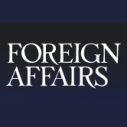
2015-08-25
Scaling the Wall - Hungary's Migration Debate
Hungary has not faced a refugee crisis this large since the Yugoslav Wars in the 1990s, when Hungarian authorities had to handle close to 50,000 asylum seekers in 1991 alone.
Read more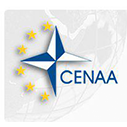
2015-04-25
“NO TO EXTREMISM!”- Educational Workshop for Young Leaders
On April 24, we presented the Demand for Right-Wing Extremism (DEREX) Index to representatives of Slovak youth political organizations at a workshop of the Centre for European and North Atlantic Affairs.
Read more
2014-12-28
A szélsőjobboldal iránti társadalmi kereslet változása Magyarországon
A Socio.hu ESS különszámában megjelent tanulmányunkban bemutatjuk, miként alakult az attitűd-szélsőségesek aránya az ESS adatfelvételeinek teljes skáláján. Rávilágítunk a keresleti és a kínálati oldal közötti összefüggésekre. Elemzésünkben kiemelt figyelmet fordítunk a hazai eredményekre.
Read more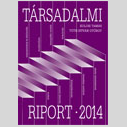
2014-12-11
Szélsőjobboldaliság Európában és Magyarországon
A Társadalmi Riport 2014 című kötetben megjelent tanulmányunkban összehasonlítjuk az attitűd-szélsőségesek arányait és főbb jellemzőt, majd mindezek alapján csoportosítjuk az egyes európai országokat.
Read more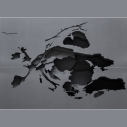
2014-10-27
Jonathan Ravasz – Visualization of the DEREX Index
This project was motivated by the rise of right-wing extremism across Europe. Jonathan Ravasz created a visual representation of the state of support for extremist ideologies.
Read more
2014-10-13
Political Capital: Jobbik extended its influence in the municipalities
Political Capital prepared an analysis on Jobbik’s performance at the Hungarian municipal elections, held on October 12, 2014.
Read more
2014-05-23
Available on Demand - Demand for Right-Wing Extremism is on the rise in Europe
Clearly rising anti-establishment and, within that, anti-EU attitudes in most member states leave parties agitating against the European Union in a strong position – it is revealed in Political Capital’s most recent data on Demand for Right Wing Extremism Index (DEREX).
Read more
2014-05-21
Changing Enemies of the Western far-right: from Immigrants to Europe
The more successful populist, Euro-reject parties in the last few years have shifted their platform’s central pillar from anti-immigration in 2009’s EP election to anti-EU in 2014’s EP election.
Read more
2014-04-10
Az orosz kapcsolat
A szélsőjobboldalra gyakorolt orosz befolyás ma már egész Európában tapasztalható jelenség, ami kiemelt kockázatot jelent az euroatlanti integrációra nemzeti és közösségi szinten egyaránt, különös tekintettel a 2014-es európai parlamenti választásokra és az ukrán válságra.
Read more
2014-03-31
Mutual benefits: Jobbik‘s pro-Iranian policy
From Iran’s perspective, Jobbik may be seen as a way to enter into Europeanpolitics. On the other hand, the party’s close ties with Russia, also pursuing an Iran-friendly policy, gives the Hungarian far-right party a strong boost, and with such “friends” in tow the party cannot be easily sidelined.
Read more
2014-03-14
Russian connection
Russian influence in the affairs of the far right is a phenomenon seen all over Europe as a key risk for Euro-Atlantic integration at both the national and the Union level; especially in view of the upcoming 2014 European Parliamentary elections.
Read more
2013-12-21
Visualization of the Demand for Right-Wing Extremism Index
A visual representation of the DEREX by Jonathan Ravasz, Department of Visual Communication, AFAD Bratislava, Slovakia.
Read more
2013-08-10
Demand for right-wing extremist politics in Slovakia: Findings of the DEREX project
Similarly to elsewhere, in Slovakia a set of social pre-conditions exists that creates the context of activities of the extreme right. The universal, common pre-conditions include particularly factors related to the transformation of the society and its effects on lives of large segments of the popu
Read more
2012-11-08
Demand for Right Wing Extremism in Poland
An analysis of Poland’s scores on the dimensions included in DEREX as well as the index itself throughout the five waves of ESS, yields some interesting corollaries regarding the interplay between them and the social, political and economic situation of the country.
Read more
2012-10-11
How to tackle the far right?
Friedrich Ebert Stiftung Budapest and Political Capital Institute organized a conference on strategies against right-wing extremism in Budapest, Hungary on October 11, 2012 with the participation of leading international and Hungarian experts and intellectuals.
Read more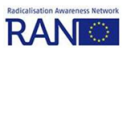
2012-07-30
Political Capital Institute is a leading member of the EU Radicalisation Awareness Network
Political Capital has become a leading institution in the EU Radicalisation Awareness Network (RAN), an organization that was set up by the European Commission as an EU-wide umbrella network of practitioners and local actors involved in countering and preventing violent radicalisation.
Read more
2012-05-30
A broken cordon sanitaire: the growing political relevance of the far right in Europe
The inability of mainstream forces to halt the surge of populist parties leads to the notion that the “cordon sanitaire” formed around the far right after the Second World War has been broken.
Read moreOur thematic websites
Political Capital's analyses and activities in English.
Research and advocacy programme focused on the role conspiracy theorising plays in shaping populist and radical politics.
Our project New electoral system in Hungary: watchdogging, advocacy and raising awareness focuses on the electoral reform in Hungary.
Our blog on political and societal extremism and conspiracy theories.
DEREX website is supported by









